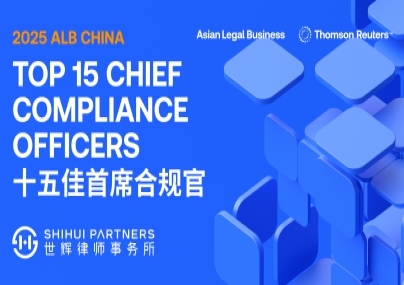
汤森路透近日通过与数十位国际律所管理者展开深入访谈,发布“律所管理简报”(A Legal Executive Briefing Special Report),指出人才、ESG、律所文化、新工作方式是当今律所管理者最关注的四大问题。
人才问题
律所因“人才战”面临更大的财务负担已不是秘密。美国排名前100律所今年第一季度律师薪资同比增长了17.3%,其他国家律所也因美国所的涨薪感受到压力。
与此同时,许多律所开始进行跨区域招聘:例如从所在国其他地区招聘律师。此外,越来越多的美国大所开始从美国第二梯队,甚至中型所猎取人才。
律师的疲劳和身心健康问题愈发受到关注,有些律所甚至指出这是他们的第一要务,并因此推出各种线上或线下心理支持服务。
面对年轻律师普遍的职场动力不足问题,部分律所采纳了灵活工作策略或借调安排,例如许可律师每周一天到其他业务部门工作、和新客户接触,以此积累经验,尝试不同的工作风格。
大多数美国律所已经确立了每周到岗2-3天的新规范。这点对高年级律师尤其重要:他们非常在乎自己是否能够灵活安排工作及时间。
此外,律所管理者愈发重视DEI(多元、公平、包容)问题,有些律所甚至将DEI作为管理层晋升指标之一。
ESG和律所文化
如今,ESG议题开始表明出一家律所的社会立场。对低年级律师来说,一家律所的价值观和立场决定着他们的求职选择,律所不仅应清晰阐述自身立场,还要言行一致地将立场化为行动。这样的“代际观念”促使部分律所设立了“千禧一代委员会”。
此外,“ESG压力”促使企业客户在选择外部供应商——包括律所时,更加关注供应商的ESG态度。律所也将ESG相关业务,如绿色债券、合规、ESG诉讼等视为新业务领域。
对ESG问题的态度会重塑律所内部文化。事实上,许多管理者认为疫情隔离导致律所丧失了原先建立的工作文化。除了鼓励大家回来上班,管理者认为还应采纳更积极的手段重塑文化,不过在此过程中,管理者的言行需要十分严密、谨慎。
全新工作模式
律所在后疫情时代和数字化风潮下应革新工作方式,这已经是老生常谈,实际上,许多革新都与技术相关。
如今,电子签章、远程会议系统、远程合作平台、工作任务分配系统、客户端门户等工具已成国际大所“标配”,客户对此反应也很积极。不过,真正将技术工具和律所工作流做好融合,还有很长路要走。律所管理者对于技术和创新的态度,也应及时从“有挺好”,变为“必须有”。
客户服务方面,许多律所花大力气投入建设了法律项目管理团队,不过客户对于小时付费之外的替代性收费安排接受程度仍较低。此外,律所对咨询类业务的兴趣越来越大,有些所已经就法律科技工具评估及实施为客户提供咨询。
可能的风险
谈到未来市场风险,被提及最多的是仍在进行中的乌克兰军事行动;第二是全球多个市场不断抬升的通胀问题,通胀可能导致流动性降低,耗干交易类工作——而交易是全球法律市场发展的最大驱动力。
报告最后提醒道,律所管理者虽然会被“内忧”占据大多数心思,但切不可忘记关注客户不断变化的需求。“相较于人才管理等内部话题,客户的问题往往容易被抛在脑后。”报告指出。
点击此处,下载阅读完整报告。
Law firm heads face more internal concerns, says new report of Thomson Reuters
Thomson Reuters has published a new Legal Executive Briefing Special Report by conducing one-on-one interviews with dozens of global law firm leaders, finding that talent, ESG issues, firm culture, as well as new ways of working being four major concerns for today’s leaders.
TALENT ISSUES
It is no secret that today’s law firms are feeling ever-increasing financial burden in face of the talent war. For Am Law 100 firms, average associate compensation increased by 17.3% on a year-over-year basis in Q1, firms from other countries are also feeling the pressure to compete with US salary increases.
Meanwhile, many firms report that the geographic location of the attorneys they are recruiting has become less of a barrier. Further, it has become much more common to see top-level Am Law firms recruiting associates from Am Law Second Hundred or even midsize firms.
Burnout among lawyers, especially among associates, as well as attorney well-being considerations were another major focal point. Several firms report that they consider attorney well-being to be one of their biggest priorities and many are offering virtual or on-site support services.
Especially in face of the lack of career motivation, some firms are looking at agile working strategies or secondment arrangements, for example allowing associates to work one day per week on a different practice area or with a client to gain more experience and break up typical working patterns.
For most US firms, working in the office for two or three days per week has become the new norm, especially for senior associates, who place high priority on having access to flexible and remote working arrangements.
Meanwhile, firm leaders report being more mindful about setting goals around DEI, and they now weigh DEI efforts as part of promotion and leadership opportunities.
ESG AND FIRM CULTURE
Nowadays, ESG topics relate more to where a law firm stand. Among associates, a firm’s purpose may determine whether they want to work for that firm in the first place. For them, firms need to create a clear sense and statement of purpose, conveying this in such a way that the associates feel they can identify with where the firm stands. This difference in generational perspective has led at least one firm to establish a “Millennial Board”.
Meanwhile, ESG pressures are also pushing corporate clients to grow increasingly concerned about how their vendors — including their outside counsel — are prioritizing ESG. Law firms are also seeing ESG as a potential area for business development. Areas such as green bonds, regulatory compliance, and ESG-based litigation are obvious areas for law firms looking to expand.
ESG considerations may reshape a law firm’s internal culture. Actually, many firm leaders have spoken about the loss of workplace culture during the pandemic. Apart from encouraging more attorneys to be back to the office, leaders also speak of the need to be more proactive about fostering culture while being mindful of the communications they are putting forward, both in word and action.
NEW WAYS OF WORKING
It has been an old tale how law firms should adopt new ways of working in face of both the post-covid era and the trend of digitalization, and many of these discussions relate to technology.
Today, tools like e-signatures, virtual meeting software, remote collaboration platforms, work allocation tools and client portals have become nearly universal among large law firms. And clients have responded positively to these changes. However, there is still a long way for firms to improve tech adoption with internal workflows. Also, firm leaders need to update their mindset towards tech tools and innovation as something “have to have”, rather than “nice to have”.
In terms of client service, many firms have spent considerable money and effort in building up legal project management teams but the acceptance of alternative fee arrangements by clients is still low. Meanwhile, there is a growing interest among many firms to offer consulting-type services, and those have already done so are mostly involved with activities such as legal tech evaluation or implementation.
POTENTIAL DISRUPTORS
Finally, talking about potential market disruptors, chief among them are the still-evolving implications of the military action in Ukraine. Ranking right behind are concerns about rising inflation in many markets around the world, which could trigger a slowdown of liquidity, drying up much of the transactional work that has been the driver of so much of the growth in the legal market across the globe.
The report also suggests that although law firm leaders today have no shortage of pressing considerations internally, they should not neglect the changing needs of their clients. “Such external considerations may easily fall behind issues such as talent management that loom so heavily in the forefront of law firm management discussions today,” it warns.
You can download the full report from here.


